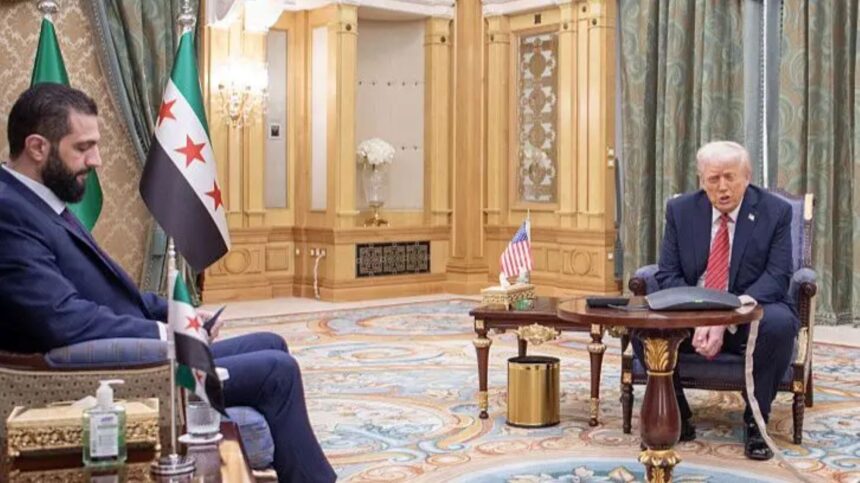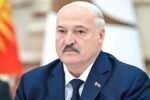In a groundbreaking diplomatic move, U.S. President Donald Trump held a historic meeting in Riyadh with Syria’s interim president Ahmed al-Sharaa, marking the first official contact between Washington and Damascus in over 25 years. The encounter signals a seismic shift in Middle East diplomacy and U.S. foreign policy.
During the high-level talks, Trump announced the lifting of longstanding U.S. economic sanctions on Syria — sanctions that had been in place since the Bashar al-Assad regime. Celebrations broke out in Damascus and other Syrian cities following the news, as regional powers like Saudi Arabia and Turkey expressed support, while Israel voiced concern over al-Sharaa’s Islamist past.
Al-Sharaa, formerly known as Abu Mohammed al-Julani, was the leader of Hay’at Tahrir al-Sham, a group previously linked to al-Qaeda. He led the military campaign that toppled Assad in December 2024, positioning himself now as the face of a newly forming Syrian state.
At the meeting, Trump handed Syria’s new leadership five specific directives as conditions for future cooperation:
- Sign the Abraham Accords to normalize relations with Israel, joining the expanding bloc of Arab-Israeli normalization agreements.
- Expel all foreign terrorists currently operating within Syrian territory.
- Deport Palestinian militants specifically, whom Trump labeled as a separate and urgent concern.
- Assist the U.S. in preventing the resurgence of ISIS, contributing to regional counterterrorism efforts.
- Take full responsibility for ISIS-linked detention centers in northeastern Syria.
This bold diplomatic pivot underscores a pragmatic shift in U.S. Middle East policy, aiming to reconfigure regional alliances and limit the influence of Iran and China. Yet, partnering with a leader like al-Sharaa — whose past is steeped in Islamist militancy — has drawn mixed reactions, especially from close U.S. allies like Israel, which remains wary.
Still, for Trump, this move reflects his emphasis on deal-making and results, signaling that former adversaries can become allies under the right conditions. Whether this gamble yields lasting peace or invites new tensions remains to be seen.







